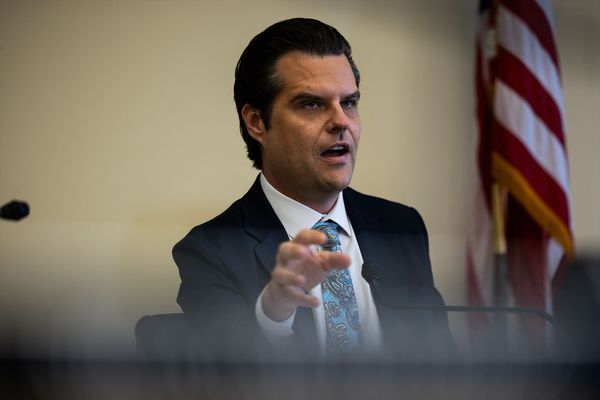
Washington (AFP) - The conservative-dominated US Supreme Court, after quashing abortion access, begins a new term Monday which could bring setbacks to the rights of African Americans and gay couples.
Anti-discrimination laws, voting rights and immigration are among the hot topics on the docket for the nation's highest court.
For the first time, the more than 230-year-old court will feature an African American woman -- Ketanji Brown Jackson, named to the bench by Democratic President Joe Biden.
The liberal Jackson's arrival will not modify the balance of power on the nine-member court, however.
With six justices -- three of whom were nominated by former president Donald Trump, a Republican -- conservatives will continue to wield a solid majority.
David Cole, legal director of the American Civil Liberties Union (ACLU), said the last term "saw the court aggressively exercising its newfound conservative power to upend long established precedents."
"This term, the court appears ready to do so again," Cole said."The court is not likely to act modestly or at least is not inclined to act modestly."
In June, the court struck down the landmark 1973 ruling guaranteeing a constitutional right to abortion, expanded public carry rights for gun owners and curbed the powers of the government agency responsible for environmental protection.
The rulings were welcomed in conservative circles which have accused the court in recent years of engaging in judicial activism when it comes to major social issues.
Ilya Shapiro, director of constitutional studies at the conservative Manhattan Institute think tank, said the court is reversing what he called the excesses of the 1970s.
Shapiro said he expects the court to take aim next at affirmative action policies which allow universities to take race into account in their admissions practices.
The court is to hear arguments on the use of race in deciding who gets to attend Harvard University and the University of North Carolina (UNC).
Harvard and UNC, like many other US institutions of higher education, use race as a factor in trying to ensure a diverse student body and to make up for a legacy of racial discrimination against African Americans and Hispanics.
The court has ruled previously in favor of affirmative action but it has long been in the cross-hairs of the right and its opponents believe the current court will be receptive to their arguments.
'Far-reaching consequences'
Another closely watched case, which will be heard by the court on Tuesday, involves the seven congressional districts in the southern state of Alabama and the 1965 Voting Rights Act, which aims to prevent discrimination against African Americans at the polls.
The civil rights legislation allows for the creation of Black-dominated districts to ensure they have representation in Congress.
But it is illegal to restrict their voting power by concentrating Black voters in a single district or by splitting them into multiple districts.
A congressional map drawn up by the Republican-dominated Alabama state legislature provides for only a single Black-majority district although they make up about 25 percent of the population of the state.
The case takes on added significance because Black voters tend to vote overwhelmingly for Democrats.
Another case before the court would give state legislatures more power to regulate federal elections and could have "far-reaching consequences for democracy," said Sophia Lin Lakin of the ACLU's voting rights project.
The case could change how federal elections are conducted and give state legislatures "broad unchecked power over federal elections," Lin Lakin said.
The Supreme Court will also revisit an issue from several years ago, when it ruled in favor of a cake-maker who cited his Christian beliefs in refusing to make a wedding cake for a gay couple.
The ruling in that case was narrow, however, and the court is being asked this time to decide whether a graphic designer who declines to build wedding websites for gay couples is violating anti-discrimination laws.
Between now and June 30, the end of the term, the Supreme Court is also expected to rule on expelling undocumented migrants, the death penalty and adoption of Native American children.







